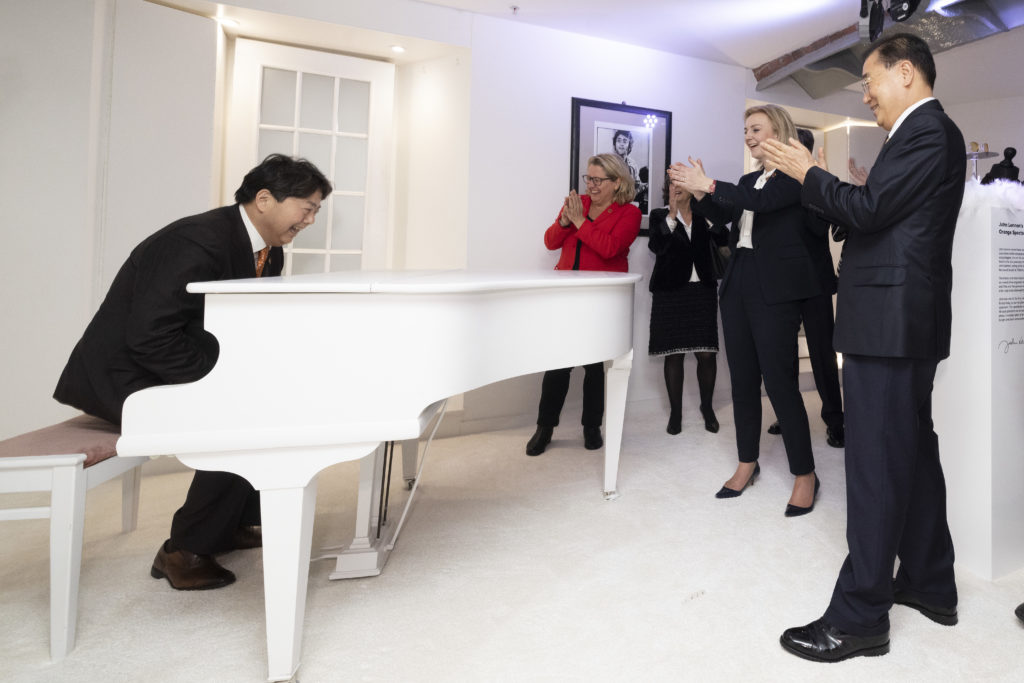The Peninsula
2021 in Review: Hope for Better Korea-Japan Relations in 2022

This is the fourth in a 10 part series looking at how the issues identified in KEI’s annual “10 Issues to Watch for on the Korean Peninsula” series developed in 2021. The original “10 Issues” piece can be found here.
On December 12, 2021, Japanese Foreign Minister Hayashi Yoshimasa delighted his colleagues at the G-7 summit in Liverpool with an impromptu rendition of John Lennon’s iconic, “Imagine.” South Korean Foreign Minister Chung Eui-Yong was among those smiling and clapping in approval.
This is hopeful news because press reports about the conversation Chung and Hayashi held the same day confirm only what we already know: Seoul and Tokyo differ over how to unravel knots binding shared history—continuing to weaponize it for certain parties—yet agree to work together and together with Washington to cope with North Korea.
The takeaway? Talk about the future, not the past. What about the present?
Pundits describe current Seoul-Tokyo relations as “worst ever.” The description is clickbait absent of context. The moments that formed today’s disagreements over histories of forced labor and sex slavery were much worse, as arguably were the less violent yet frozen decades preceding the 1998 Kim-Obuchi summit when anime was forbidden in Korea and a BTS Army in Japan unimaginable.
That said, US Deputy Secretary of State Wendy Sherman’s solo appearance at a November 17 press conference compounded “worst ever” impressions: neither Japanese nor Korean diplomats showed up as planned, leaving Secretary Sherman alone to explain that things were not as bad as they seem. This moment should demonstrate to DC that some of Seoul and Tokyo’s rifts can no longer be willed away—especially the territorial matter directly involving the US—no matter how much Washington persists with this approach.
In addition, COVID restrictions mean that Seoul and Tokyo’s standoff continues with only those at the top enjoying mask free, spontaneous moments of reality. Possibilities to chart a smoother course forward remain thwarted with the extra-unfortunate side effect of galvanizing “us versus them” tactics: Internet and Twitter wars feed on stay-at-home orders.
How then can Hayashi and Chung’s enjoyment of John Lennon give hope? Listen to the song’s lyrics and engage again with one of the thorniest disputes still dividing Seoul and Tokyo: the so-called “comfort women” issue. Most important, Seoul and Tokyo should desist framing this as a Korea-Japan problem because it isn’t. Roughly 20 Filipina, 2 Taiwanese, 13 South Korean, 40 Chinese, and 100 East Timorese and Indonesian women are registered as survivors of this transnational history. Its first known victims were Japanese.
In 2022, before more survivors die, were Seoul and Tokyo to imagine, as John Lennon did, that “there’s no countries” in this instance and address the matter as one of history’s largest examples of state-sponsored trafficking of minor children and young women for sexual exploitation, both Seoul and Tokyo would gain moral footing to move their national interests forward amidst the ongoing regional atrocities and conflicts that surround them now.
Alexis Dudden is a Professor of History at the University of Connecticut. The views expressed here are her own.
Image from the photostream of the UK Government on flickr Creative Commons.
